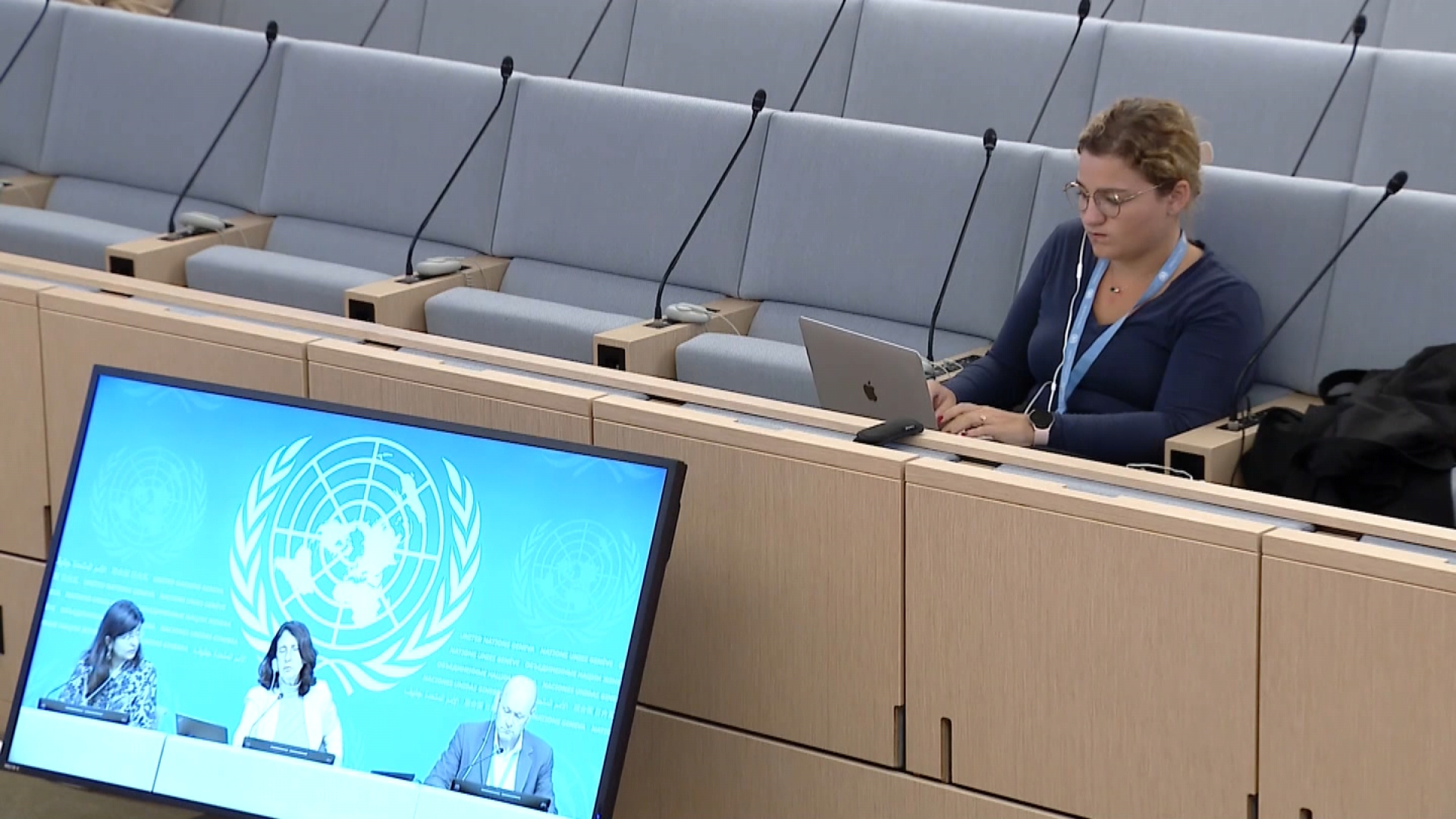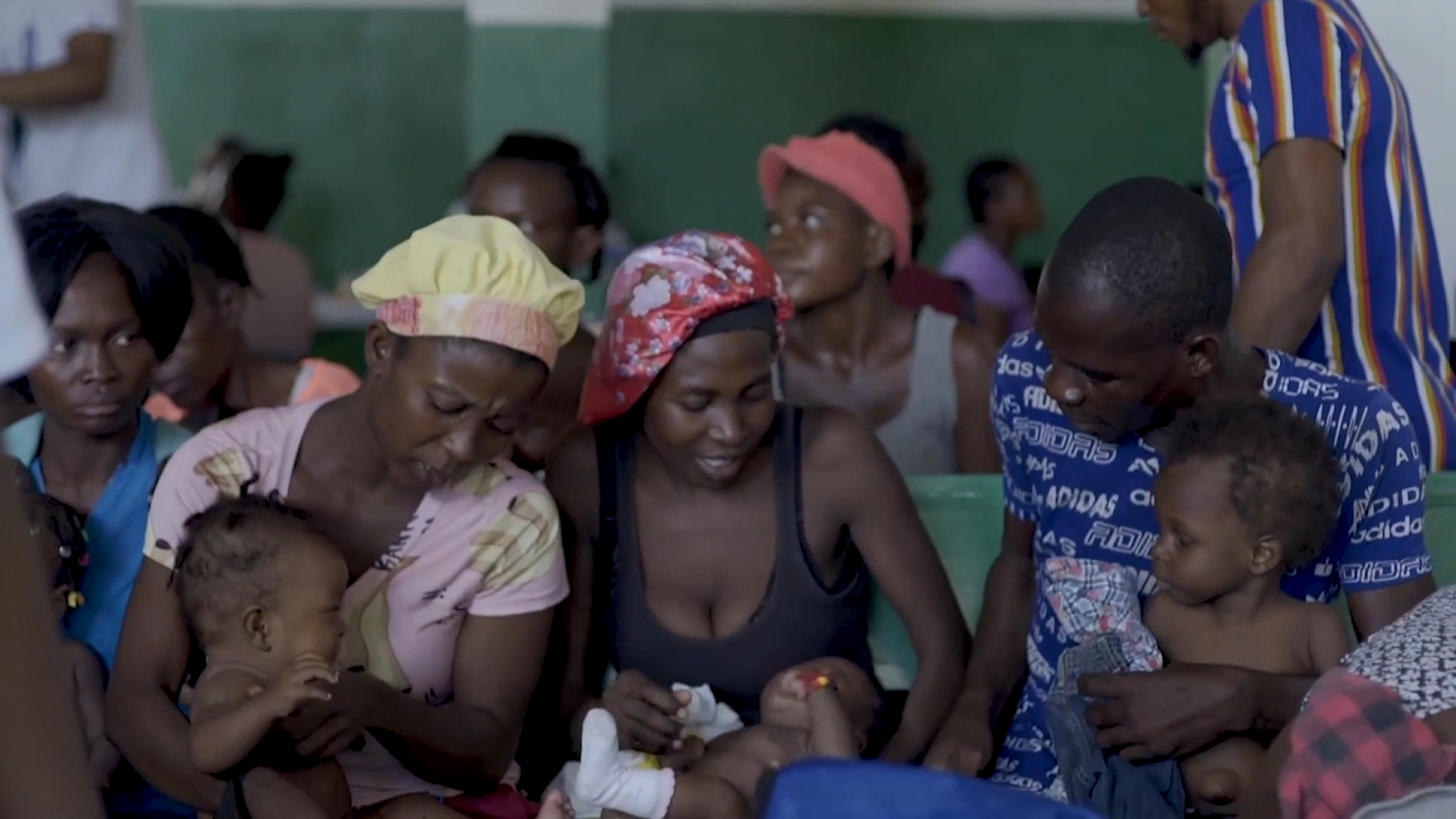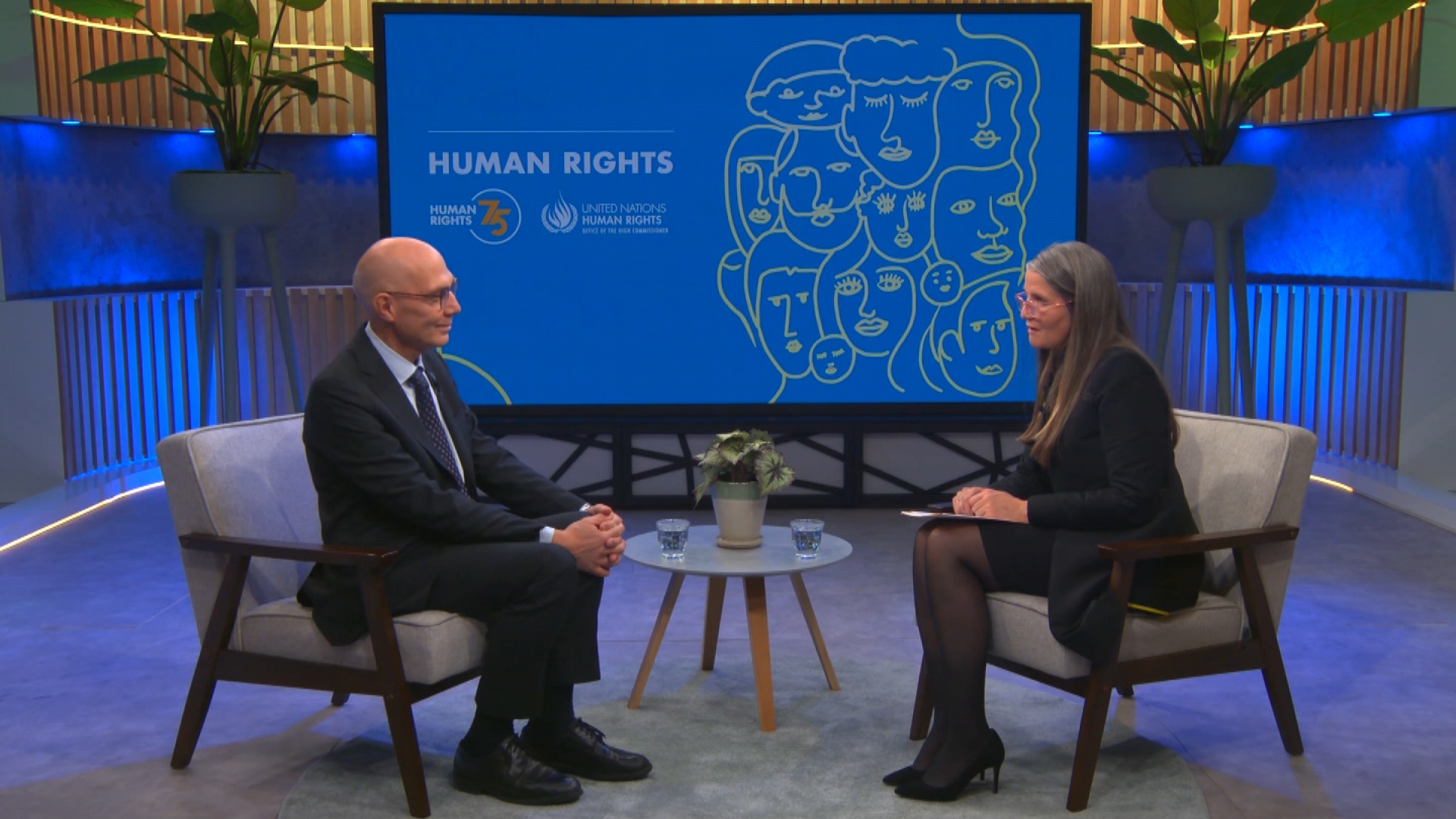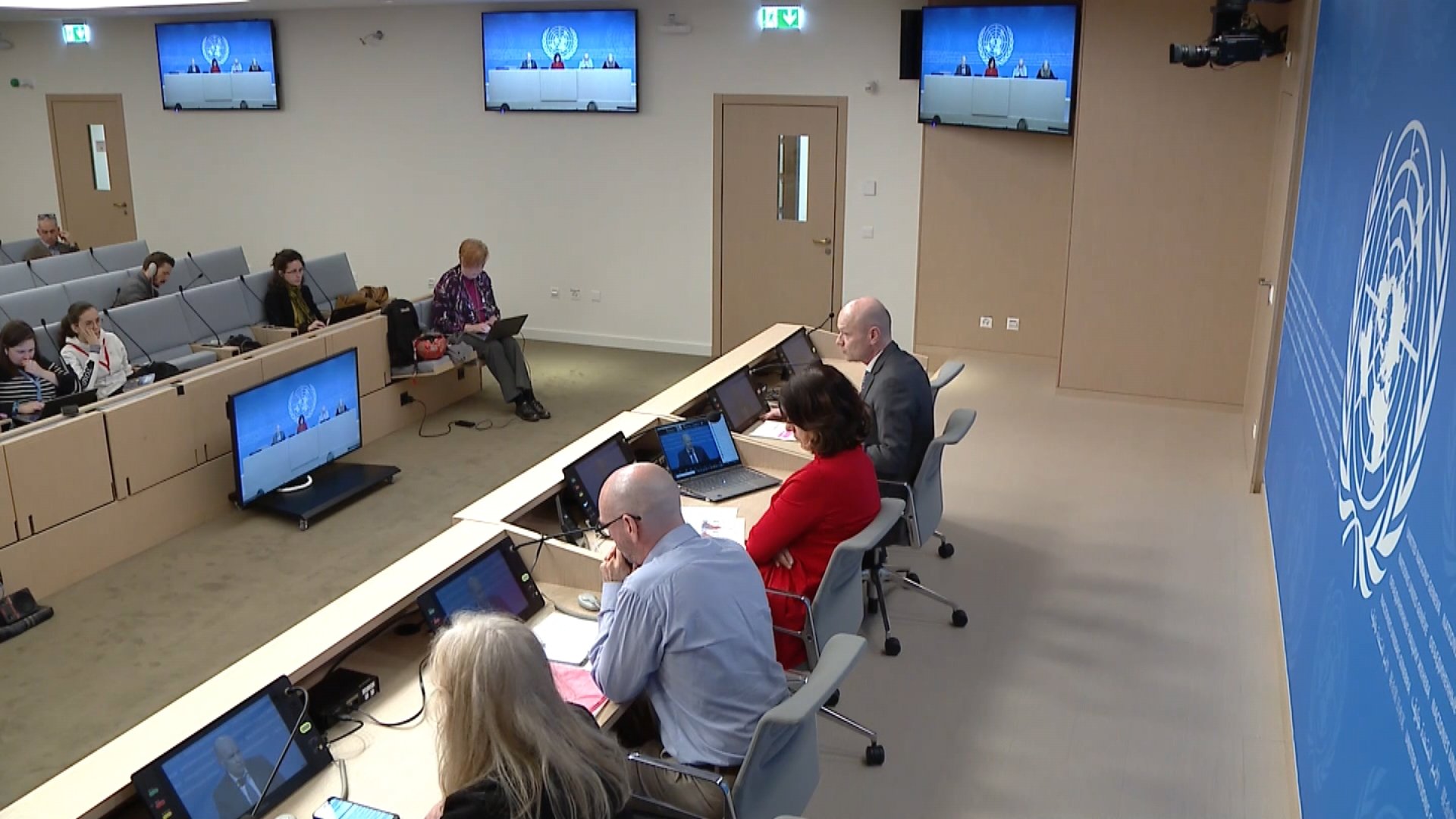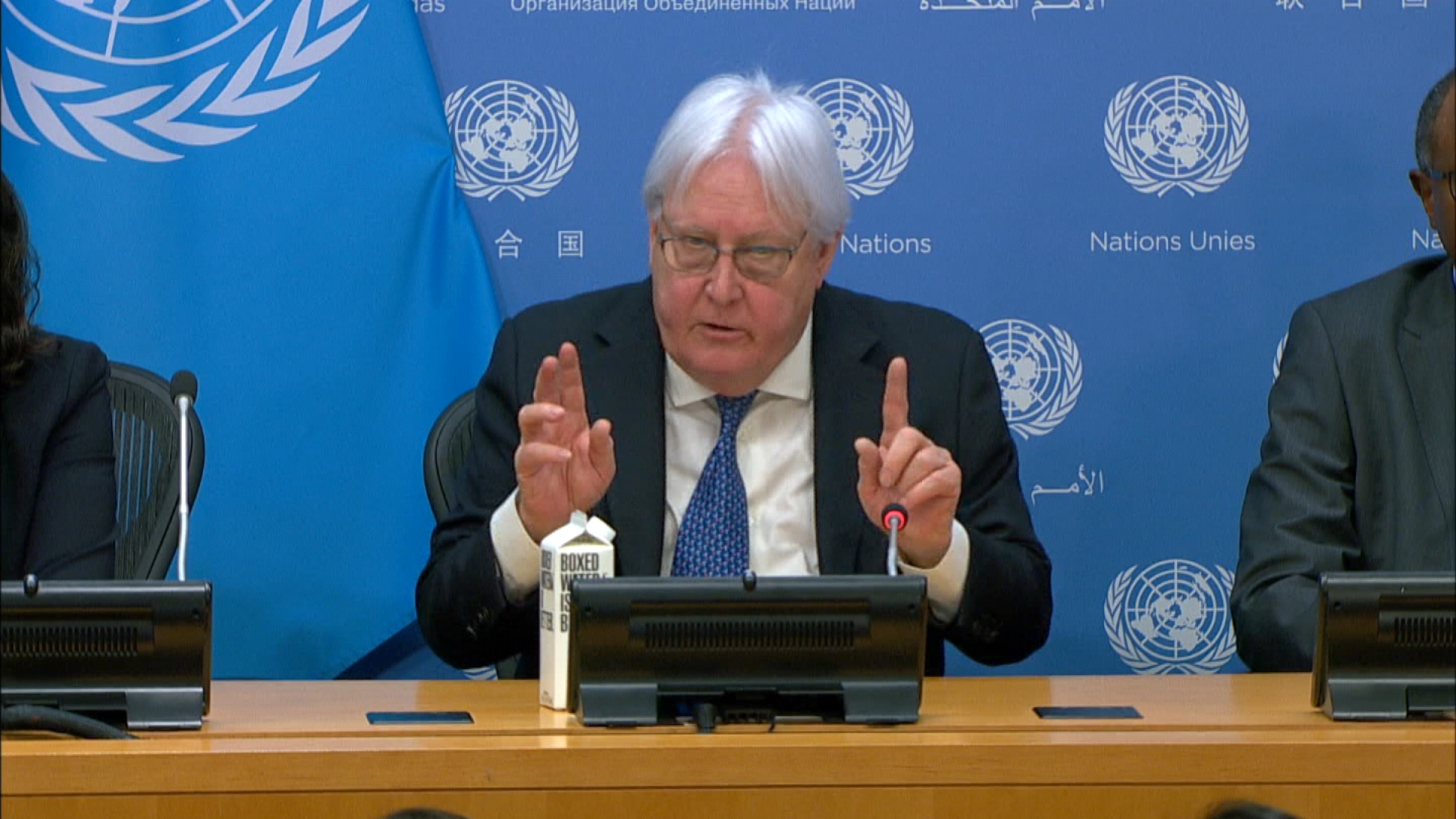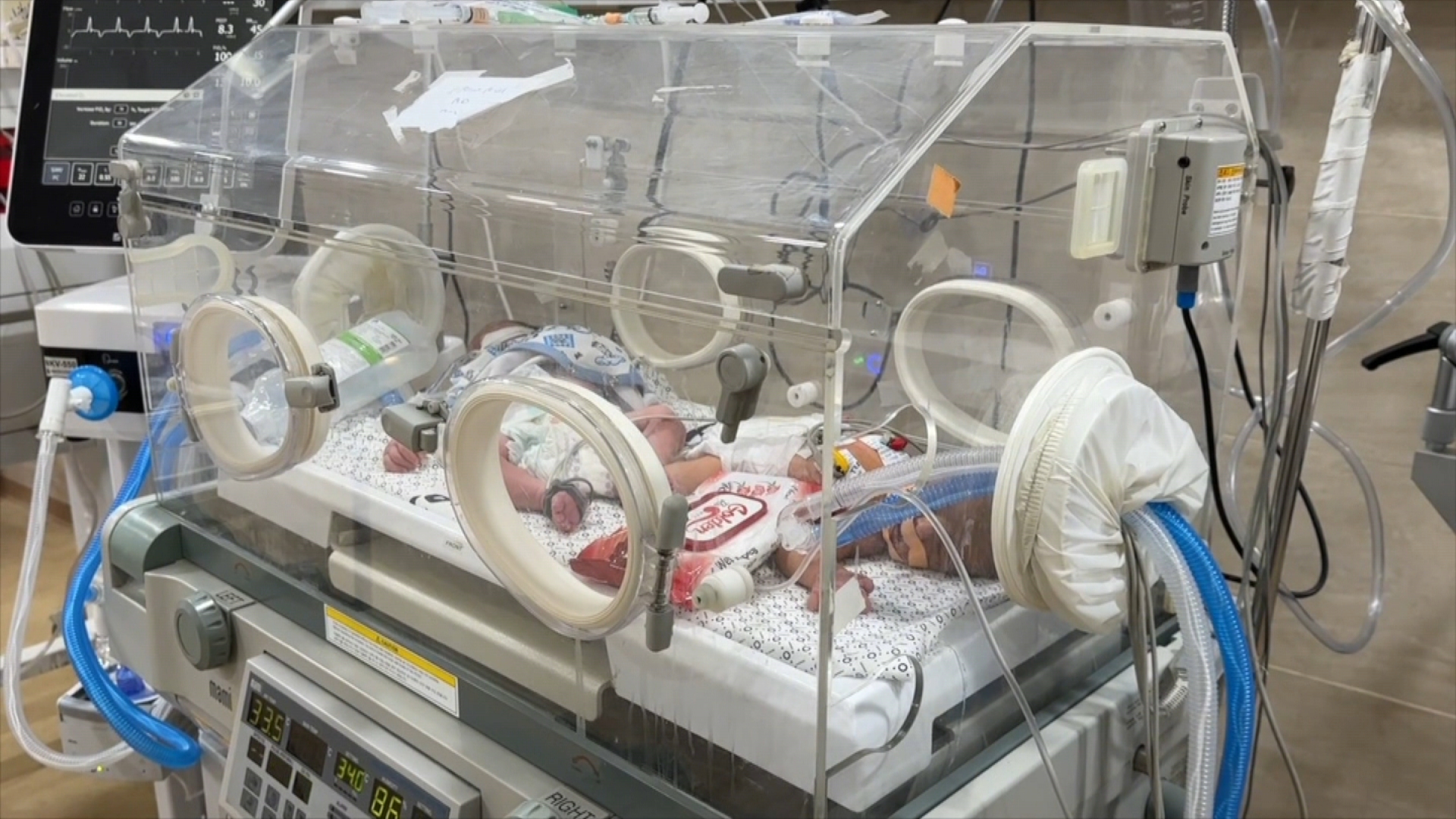GENEVA / GAZA HUMANITARIAN UPDATE
STORY: GENEVA / GAZA HUMANITARIAN UPDATE
TRT: 02:51
SOURCE: UNTV CH
RESTRICTIONS: NONE
LANGUAGE: ENGLISH / NATS
DATELINE: 16 APRIL 2024, GENEVA, SWITZERLAND
1. Wide shot, exteriors, Palais des Nations
2. Wide shot, speakers at podium, briefing room
3. SOUNDBITE (English) Tess Ingram, communication specialist, United Nations Children's Fund (UNICEF):
“Over the last six months, a staggering number of children have been wounded amid the intense and often indiscriminate attacks. Their lives forever changed by the horrors of war. The total number of injured children in this conflict is quite difficult together, but the most recent data from the Palestinian Ministry of Health documents more than 12,000 children, which is about 70 children a day injured in Gaza since the current conflict began.”
3. Med shot, speakers at podium, screens
4. SOUNDBITE (English) Tess Ingram, communication specialist, United Nations Children's Fund (UNICEF):
“It's disproportionately impacting kids. Every second person in Gaza is a child, so children are wearing a tremendous share of the scars of this war.”
5. Med shot, journalists
6. SOUNDBITE (English) Tess Ingram, communication specialist, United Nations Children's Fund (UNICEF):
“Sick and injured children who are evacuated must be accompanied by their family members. With at least 70 children injured every single day, we need the number of medical evacuations to increase so children can access the care that they urgently need. And with one child killed or injured every ten minutes, above anything else, we need a cease-fire.”
7. Wide shot, journalists, speakers at podium
8. SOUNDBITE (English) Ravina Shamdasani, spokesperson, UN Human Rights (OHCHR):
“The UN Human Rights Office urges all states with influence to do everything in their power to halt the increasingly horrific human rights and humanitarian crisis in Gaza. The rising violence and targeted attacks in the West Bank, and the heightened risk of wider escalation of the conflict in the Middle East.”
9. Med shot, journalists, speakers at podium
10. SOUNDBITE (English) Susanne Mikhail Eldhagen, Regional Director for the Arab States, UN Women:
“Up to date, the UN estimates that more than 8,000 women might have become widowed because of the recent war on Gaza. That means 8,000, husbands have been killed. These women are in a particularly vulnerable situation because, as we can imagine, they are solely responsible for the very protection, well-being, but also assurance of food and water for their entire families.”
11. Med shot, moderator at podium, speaker on screen
12. SOUNDBITE (English) Susanne Mikhail Eldhagen, Regional Director for the Arab States, UN Women:
“Women often find it much more difficult to access services. In this case, access to food and water than men do. In the recent survey conducted in Gaza, it shows that 87% of women find it harder to access food, than men in Gaza.”
13. Various shots, journalists, technical team working behind windows
More than one million Palestinian women and girls in Gaza have almost no access to food or safe water, with disease growing amidst “inhumane” living conditions, UN humanitarians said.
Six months into the war in Gaza, UN Women launched today (16 Apr) its latest Gender Alert on Gaza stating that 10,000 Palestinian women in Gaza have been killed, among them an estimated 6,000 mothers, leaving 19,000 children orphaned.
“To date, UN estimates that more than 8,000 women might have become widowed because of the recent war on Gaza, that means 8,000 husbands have been killed,” said Susanne Mikhail Eldhagen, Regional Director for the Arab States for UN Women.
Briefing journalists at the UN in Geneva from Cairo, she explained that these women were “in a particularly vulnerable situation because, as we can imagine, they are solely responsible for the very protection, well-being, but also assurance of food and water for their entire families”.
Women who have survived Israeli bombardment and ground operations have been displaced, widowed, and now face starvation.
The disproportionate impact of the conflict has made it a war on women, UN Women maintained.
“Women often find it much more difficult to access services. In this case, access to food and water than men do. In the recent survey conducted in Gaza, it shows that 87 percent of women find it harder to access food than men in Gaza,” said Eldhagen.
The publication, entitled “Scarcity and Fear” focuses on the lack of access to water, sanitation, and hygiene (WASH) services, which are vital to women's health, dignity, safety, and privacy.
According to the report’s findings, more than one million Palestinian women and girls in Gaza face catastrophic hunger, with almost no access to food, safe drinking water, functioning toilets, or running water, creating life-threatening risks.
Access to clean water is especially critical for breastfeeding mothers and pregnant women, who have higher daily water and calorie requirements.
The UN Children's Fund (UNICEF) deplored the high loss of life and injuries that Palestinian children in Gaza have sustained amid ongoing heavy Israeli bombardment.
Following her recent mission to northern Gaza where her UN vehicle was targeted, UNICEF's communications specialist Tess Ingram said from Cairo that over the last six months “a staggering number of children have been wounded amid the intense and often indiscriminate attacks, their lives forever changed by the horrors of war.
She noted that it was not possible to accurately estimate the total number of injured children in the conflict to date “but the most recent data from the Palestinian Ministry of Health documents more than 12,000 children, which is about 70 children a day injured in Gaza since the current conflict began.”
She added that “the war in Gaza is disproportionately impacting kids. Every second person in Gaza is a child, so children are wearing a tremendous share of the scars of this war.”
The UNICEF officer emphasized the ongoing challenges in evacuating critically injured or ill patients from Gaza for medical treatment elsewhere. With fewer than half of all "medivac" requests approved, only approximately 4,500 individuals, predominantly children, have been able to depart Gaza.
This equates to fewer than 20 people per day gaining access to the care they urgently require outside the region.
“Sick and injured children who are evacuated must be accompanied by their family members. With at least 70 children injured every single day, we need the number of medical evacuations to increase so children can access the care that they urgently need. And with one child killed or injured every 10 minutes, above anything else, we need a ceasefire,” said Ingram.
Emphasizing the dire situation in Gaza, Ravina Shamdasani, spokesperson for the UN Human Rights Office (OHCHR), urged “all States with influence to do everything in their power to halt the increasingly horrific human rights and humanitarian crisis in Gaza. The rising violence and targeted attacks in the West Bank and the heightened risk of a wider escalation of the conflict in the Middle East.”
According to OHCHR, nearly 1.7 million people remain forcibly displaced, living in appalling conditions and under constant threat.
In the past week alone, fighting has intensified in Middle Gaza leading to the displacement of some 10,000 people from in and around An Nuseirat camp and near Wadi Gaza.
